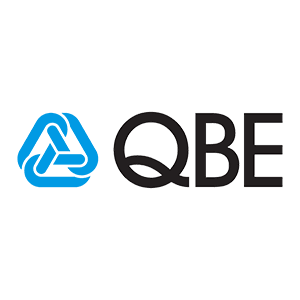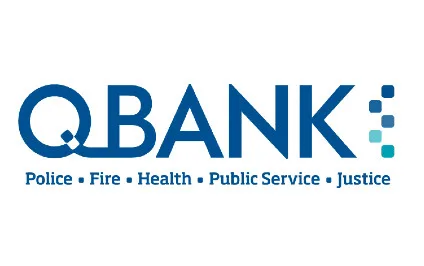Buying a home in 2022? Here are 5 questions to ask yourself

First home? Family needs more space? Time to downsize? Perfect property for your portfolio? If you're buying in 2022, ask yourself these key questions.
 Sponsored by QBE - helping customers learn more about Lenders' Mortgage Insurance (LMI). Learn more on Finder's LMI Hub, brought to you by QBE Insurance. Providing LMI since 1965.
Sponsored by QBE - helping customers learn more about Lenders' Mortgage Insurance (LMI). Learn more on Finder's LMI Hub, brought to you by QBE Insurance. Providing LMI since 1965.
Looking to buy a new home this year?
Whether you're looking to upgrade the family home, downsize to a smaller place or want to add to your property portfolio, there are some key questions you need to ask yourself.
So let's take a look at the 5 things any homebuyer needs to ask themselves in 2022.
1. How much should I save for a deposit?
When it comes to home deposits – the bigger the better. A larger deposit means that you'll need to take out a smaller loan.
In turn, this means a quicker repayment period and lower interest costs.
The general rule of thumb when you're saving for a deposit is at least 20% of the intended purchase price. The more you have saved, the more favourably you tend to be viewed by the lender.
Many first borrowers save a 20% deposit. But this can be easier said than done. With rising interest rates, many prospective homebuyers have seen a reduction in what they can afford to borrow.
If you already own your own place and are looking to upgrade or buy another property you may not even need to save a deposit. You might be able to leverage the equity in your current home and borrow some of it to cover your deposit.
But even if you don't have 20% saved or sufficient equity, there are still ways and means to secure a loan. And that leads us to the next question.
2. What's lenders' mortgage insurance – and will I need to pay it?
So, just what is lenders' mortgage insurance?
Often referred to as simply LMI, it's a form of insurance that protects the financial institution lending you the funds for your mortgage.
LMI generally needs to be paid if you're borrowing more than 80% of the purchase price of the property.
It's not unusual for first home buyers to need to pay LMI, though it's less common for existing homeowners and investors. However, if you don't have adequate equity in your existing home, you may need to pay it when you apply for another loan.
With that said, LMI still allows the borrower to have lender choice. For example, QBE offers LMI through a range of its partners – so you're still able to select the loan that best suits your needs. And LMI actually offers opportunities for borrowers.
For one thing, it's no longer necessary to save a huge deposit. This can mean that it's easier to get onto the property ladder, sooner.
Using an LMI calculator, you can get a rough idea of how LMI can impact your loan.
3. Should I refinance?
If you're upgrading your current property or expanding your portfolio, you may be wondering if you should refinance your existing mortgage.
If you do, you may be able to get a better interest rate or access to new loan features. In some cases, these benefits can lead to significant savings over the lifespan of a loan.
Adding an offset account, redraw capability and unlocking equity are other common reasons that people refinance.
It's important to remember that everyone's circumstances are different. Make sure you consult with a financial adviser before opting to refinance.
4. Should I clear off existing debt first?
Some borrowers are wary about paying off existing debt before opting for a new mortgage. After all, it can cut into the amount of time and money you can spend saving.
There are definitely times when it's better to opt to clear off current debt before attempting to borrow.
It may mean that you'll need to pay some LMI as part of your loan, rather than saving for longer – but this still means that you'll be able to purchase property sooner than might have otherwise been possible.
You should always check your credit rating before applying for a loan. Everyone is entitled to a number of "free" credit checks each year – in fact, you can do it through the Finder app or website.
5. How does property fit into my overall investment strategy?
Property investment is often seen as one of the "can't lose" strategies. But with rising interest rates and dropping housing prices, you don't want to find yourself losing out on your investment.
So if you're thinking about buying another property in 2022, it's important to weigh up your options and think strategically. Are you better off making a purchase now or waiting?
When used carefully, tools like LMI can potentially help you secure loans to seize on opportunities as they arise. It's just important to ensure that you've got the capability to make repayments as necessary.
Of course, everyone's risk tolerance is different. We'd suggest that you consult with a financial adviser before making any major decisions.
Compare home loans from QBE's partner lenders
| Lenders | |||
|---|---|---|---|
 |  | ||
 |  | ||
 |  | ||
 |  | ||
 |  | ||
 | |||
 |  | ||
 | |||
 |  | ||
 | |||
 |  | ||
 |  | ||
 |  | ||
 | |||
 |  | ||
 | |||
 |  | ||
 |  | ||
 |  | ||
 |
